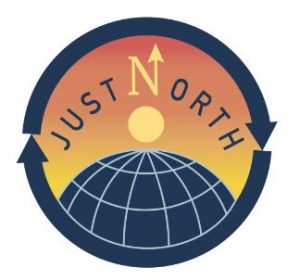This chapter addresses what theories of justice may help further our understanding of injustices in the Arctic. The purpose is to critically discuss the baseline for a Forstian transnational theory of justice and its applicability to the Arctic, primarily the Arctic Council.
Ohlsson, Johanna
This chapter addresses what theories of justice may help further our understanding of injustices in the Arctic. The purpose is to critically discuss the baseline for a Forstian transnational theory of justice and its applicability to the Arctic, primarily the Arctic Council. This will take into account the regional, political, Indigenous and environmental aspects of this specific region. The account suggested here draws primarily on Critical Theory, and the suggested approach proposes that there are normative criteria required for a comprehensive theory of Arctic justice and that these are of general, rather than regional, character. Hence, the chapter tests to what extent a transnational theory of Arctic justice is reasonable and posits scepticism towards a theory based on Arctic exceptionalism. It instead argues for a critical theory grounded in universal principles that embraces breadth and contextual sensitivity. The chapter contributes a discussion on the normative principles necessary for developing justice theorizing applicable to the Arctic region, as well as a discussion of the implications of assessing justice in a transnational context.
The chapter contributes a critical assessment of a few aspects of justice, which are relevant for approaching the concept of justice in the context of the Arctic. Such an assessment could be done in numerous ways, but one promising and underexplored avenue concerning the Arctic is an assessment of a Forstian notion of justice as the right to justification in Rainer Forst’s transnational account of justice. The existing literature contributing to understandings of justice and injustices in the Arctic seems to primarily do so from a development or energy perspective, often adopting versions of Amartya Sen’s and Martha Nussbaum’s capability approach (for example, Rauschmayer et al, 2015; Willand and Horne, 2018; Kortetmäki, 2018; Sidortsov and Badyina, 2023, this volume). As the first section of this volume aims to cover the characteristics of the overarching issues of justice and injustice in the Arctic, it seems an apt intellectual exercise to extend the exploration of existing justice scholarship and its application to this region. This justifies taking this position in Critical Theory as its starting point.
After this introduction, and before turning to a presentation, discussion and assessment of the Forstian theory of transnational justice, this chapter will highlight some of the aspects of justice and injustice that appear central to the Arctic. This is done through the lens of transnational relations, and with social justice in mind. The chapter then ends with a few concluding remarks and a set of study questions.
Read the full Article:
https://bristoluniversitypressdigital.com/display/book/9781529224832/ch001.xml
JUSTNORTH
JUSTNORTH is a project designed to explore the multitude of ethical systems that coexist in the Arctic, as a starting point to assess the viability of new economic activities in the region. For the millions of people who live both inside and outside the Arctic and are affected by these economic activities, decisions are made through utilitarian ethical principles: viability of an activity is based on profitability and technical feasibility, with little regard to questions of whether it is ethically right or wrong for the impacted human populations or the environment. Global climate change has launched intense speculation on Arctic resources. Increasing geopolitical tensions among some of the Arctic states increases the importance of respecting different value systems while finding common values to help strengthen the links between Arctic and non-Arctic entities. Significant practice and policy gaps in existing Arctic economic activities have led to development that is unsustainable.
Through understanding current practices of development in the Arctic through the lens of 18 case studies, JUSTNORTH aims to develop conceptual frameworks, indices and a negotiation tool, for reconciling multiple ethics and value systems. These will provide a cornerstone for determining the viability of economic activities in the Arctic, as well as clarify policy, legal, and regulatory pathways for implementing ethic-based decision-making principles.
Global climate change has launched intense speculation on Arctic resources. Increasing geopolitical tensions among some of the Arctic states increases the importance of respecting different value systems while finding common values to help strengthen the links between Arctic and non-Arctic entities. Significant practice and policy gaps in existing Arctic economic activities have led to development that is unsustainable.
Through understanding current practices of development in the Arctic through the lens of 18 case studies, JUSTNORTH aims to develop conceptual frameworks, indices and a negotiation tool, for reconciling multiple ethics and value systems. These will provide a cornerstone for determining the viability of economic activities in the Arctic, as well as clarify policy, legal, and regulatory pathways for implementing ethic-based decision-making principles.
Project details
- Project title: “Toward Just, Ethical and Sustainable Arctic Economies, Environments and Societies”
- Funding scheme: European Union Horizon 2020 Programme (EU H2020, Grant agreement ID: 869327)
- Duration: 3 years (1 June 2020 – 30 November 2023)
- Project coordinator: Uppsala Universitet, Dr. Corine Wood-Donnelly
- Project website: www.justnorth.eu/
